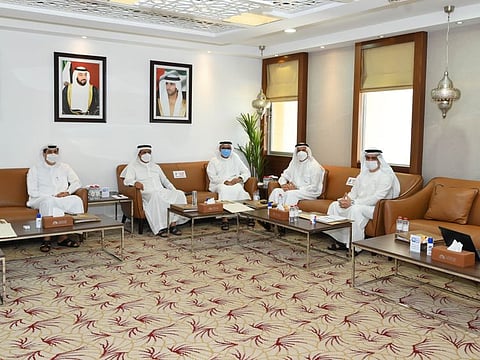Dubai Islamic Economy Development Centre launches 2021 plan
New plan reinforces Dubai’s status as global capital of Islamic Economy

Also In This Package
Dubai: The Dubai Islamic Economy Development Centre’s (DIEDC) board meeting for 2021, presided by Sultan bin Saeed Al Mansouri, Chairman of DIEDC detailed the action plan for 2021, with a specific focus on the DIEDC 2022-2030 Strategy.
The Islamic economy has witnessed four years of outstanding achievements largely be attributed to the robust DIEDC 2017-2021 Strategy. Implemented in collaboration with the Centre’s strategic partners, a key outcome of the Strategy was the year-on-year growth of the Islamic economy and an increase in its contribution to Dubai’s GDP.
“Following several years of positioning the UAE as a global capital of Islamic economy, today we are happy to lead the nation into the next phase of growth for the sector,” said Al Mansouri.
“Impactful collaborations with nations across the globe and defining public-private partnerships, as well as prioritising the exchange of knowledge and shared success stories have facilitated our journey so far. We are now set to continue our march to shape a sustainable economy following the downturn that was a direct outcome of the extraordinary circumstances of the COVID-19 pandemic.”
Pioneering status
Since the launch of the strategy in 2013 as a pillar of a strong Islamic economy based on sustainable development, the sector has witnessed continuous growth. “Through combining ethics, innovation and true growth, the Islamic economy ecosystem serves not only as an instrument to resolve economic crises, but also to safeguard against any potential ones,” said Al Mansouri.
The Dubai: Capital of Islamic Economy initiative, as part of the national economic diversification agenda, is making significant strides given the strong synergies that DIEDC boasts with its diverse strategic partners from across the public and private sectors.
“The next phase requires us to intensify collaborations with DIEDC’s strategic partners to continue building on the successful track record Islamic economy has achieved to date, and will aim to elevate the Islamic economic system to greater heights,” said Al Mansouri.
Strategic objectives
Essa Kazim, Secretary General of DIEDC, confirmed that the executive plans will continue to prioritise the strategic objectives of the Dubai: Capital of Islamic Economy initiative, to boost the industry’s contribution to Dubai’s GDP, and also bring on board more international partners keen to benefit from the growing investment opportunities the Islamic economy presents.
“The Dubai: Capital of Islamic Economy initiative continues to make significant advances in realising its strategic objectives, through multiple programmes that are well aligned with Dubai’s executive plans for 2021. Today, Dubai and the wider UAE are building growing credibility in the Islamic economy space through attracting Islamic economy experts and subject matter specialists as well as startups and young entrepreneurs,” said Kazim.
Abdulla Mohammed Al Awar, CEO of DIEDC, presented the various initiatives and outcomes achieved in line with the Dubai: Capital of Islamic Economy Strategy in 2020 and announced DIEDC’s action plan for the upcoming year that covers proposed new initiatives and expected milestones on existing ones.
Abdulla Al Awar shared the latest preparations for the fifth Global Islamic Economy Summit that will take place on 1 and 2 November 2021. Addressing the board, he said: “This landmark event is taking place during exceptional circumstances and will convene minds from across the globe to discuss the future of the Islamic economy, as well as its pivotal role in restructuring international economy and trade.”









